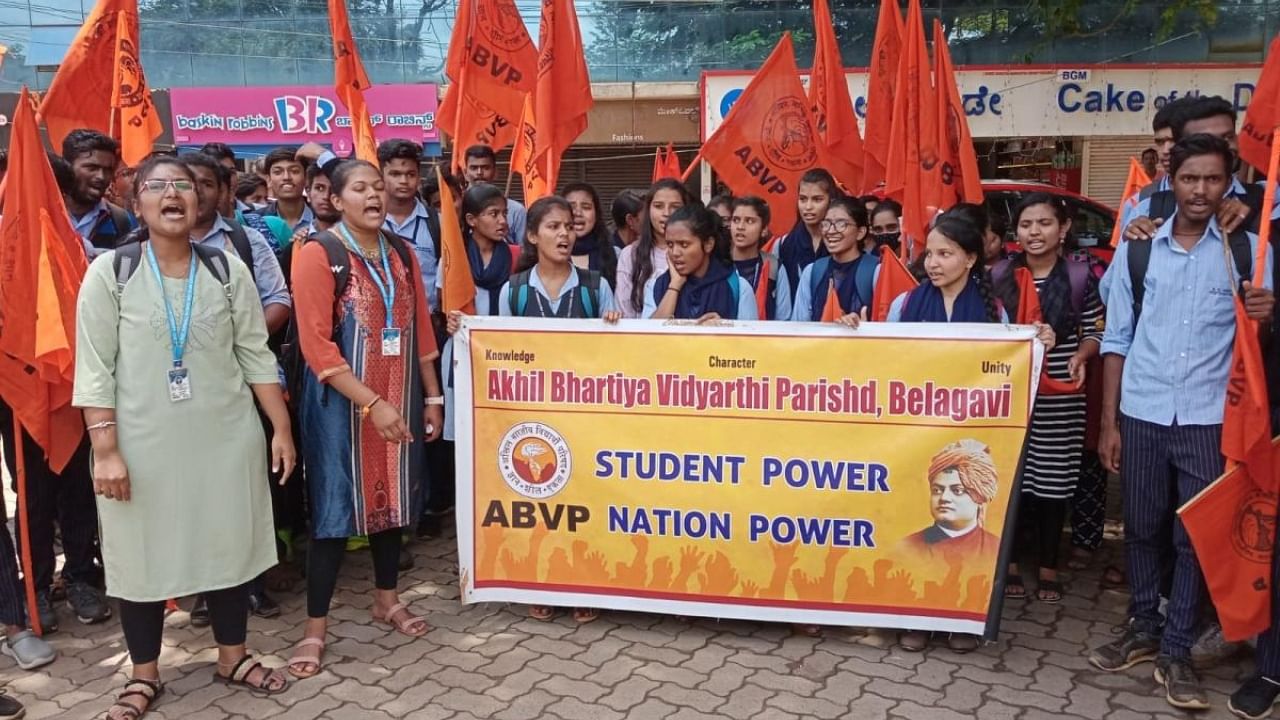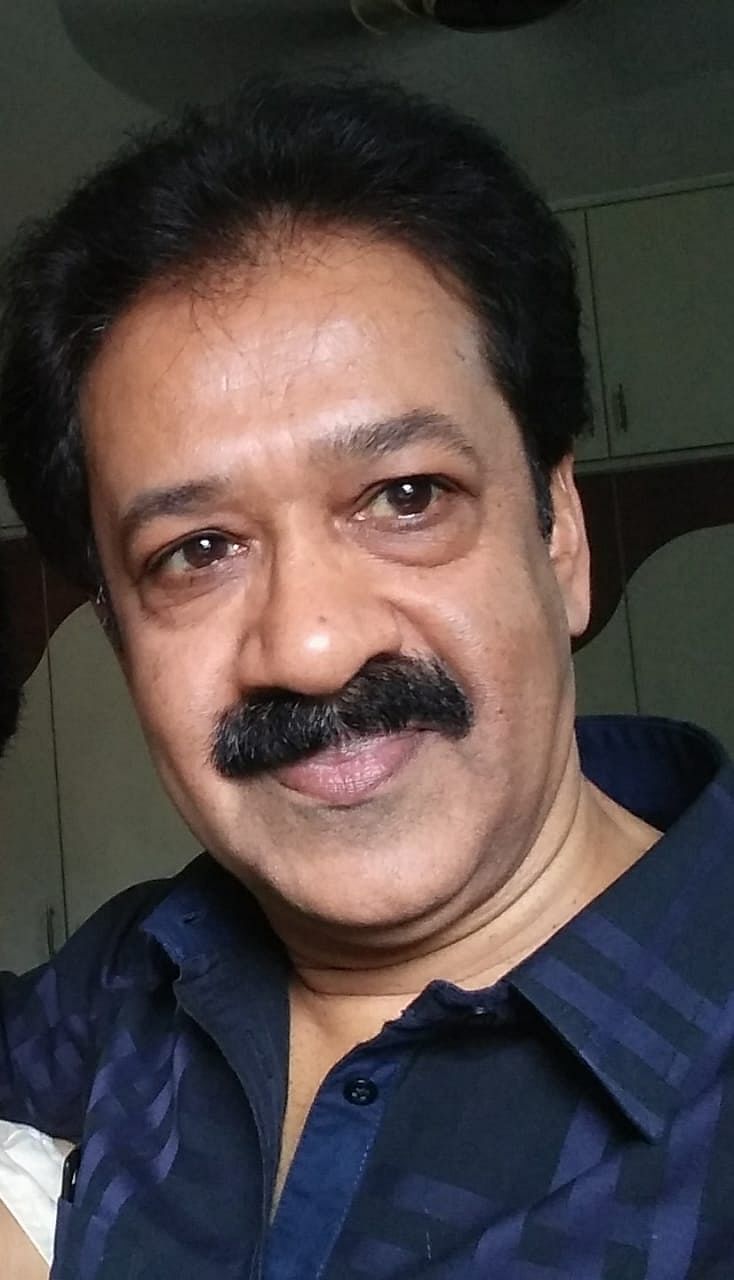
If one were to say that the Karnataka unit of the BJP is in a state of shock at present, it won’t be an exaggeration. For the first time in its history, the party is facing a backlash from its own cadres. That too from a region that has been its stronghold for decades. All resulting from an unrelenting communal hate wave claiming the lives of Hindu and Muslim youths in the coastal belt.
Party activists made an attempt to topple the SUV carrying BJP state president Naveen Kumar Kateel, gheraoed him and ministers as they visited murdered party worker Praveen Nettaru’s home in Sullia taluk of Dakshina Kannada district. Even Chief Minister Basavaraj Bommai had to face their ire. Not just this -- soon after the murder, some leaders of the BJP youth wing, Bharatiya Janata Yuva Morcha, quit their local posts. On July 30, activists of ABVP, the students’ wing of the party,
laid siege to Home Minister Araga Jnanendra’s official residence in Bengaluru. The anger among the cadres of the party is showing signs of spreading to other parts of the state.
The BJP has not faced such a backlash by its own trusted supporters in any other state that it rules, and it comes just months ahead of the next Assembly elections. The question that should bother party leaders is whether the cadre will stand by the party during the elections or will the rage continue. Without doubt, the leaders will attempt to do all they can to assuage their feelings. The issue is, what steps will they take in this direction? Does this mean that some drastic measures are on the anvil? If so, should the rest of the state worry?
The Bommai government will need to ensure that there is not even one more murder of a party worker, not just in the coastal belt but elsewhere in the state. So far, its performance, with Jnanendra as Home Minister, has come in for criticism often.
The activists’ ire is also because the Praveen murder comes in the backdrop of the murder of another Hindutva activist, 28-year-old Harsha. He was hacked to death in Shivamogga on February 20. In early July, photos surfaced showing the murder-accused enjoying special privileges in jail. They were seen making phone and video calls. Relatives of Harsha met Jnanendra to register their protest over this but stormed out accusing him of being lackadaisical towards their demand of strong action. No wonder, with this incident also in the backdrop, there was unrest among the workers in the Mangaluru-Udupi belt and this resulted in the Sullia backlash. In addition to this, the district police have been accused of not taking any precautionary measures following the murder of Masood (18), allegedly
by Hindus, in Sullia taluk just a week
before Praveen’s murder.
Bommai’s government and party thus have a twin task on their hands. Their actions have to satisfy the party workers and calm their anger, but at the same time ensure that no further violent incidents occur in the state. That’s easier said than done, especially if party leaders continue to ratchet up communal rhetoric.
The BJP’s growth in the state resulted from, and deepened, polarisation in the coastal belt on both religion and caste lines. The divide is so sharp that one communal incident invariably leads to another, taking toll of both Hindus and Muslims.
The BJP leadership knows too well that in the Mangaluru region, its task is not a cakewalk. The party’s performance was stupendous in the last few decades – it has never lost an election to the Lok Sabha from Dakshina Kannada seat since 1991, winning continuously a stunning seven times. Of the eight Assembly segments of the DK Lok Sabha seat, BJP won seven in the last polls in 2018. Thus, the party has reached near saturation in terms of victories it can have. Yet, any performance less than this would not show Bommai or the party in good light, and the leadership knows it well. With the party activists being the backbone, it thus becomes key for the leadership to win the cadres back.
This, at a time when there is a feeling that the state government, already a year in office now, is yet to take off. Bommai is seen as an ‘accidental CM’, handpicked by the party high command following the ouster of B S Yediyurappa.
Along with BJP’s growth, the coastal districts of DK, Udupi and Uttara Kannada have simultaneously seen the rise of the Social Democratic Party of India and the Popular Front of India, the two organisations having the backing of Muslims.
Discrimination
The back-to-back murders – three in a span of 10 days, two of them of Muslims – also laid bare the stark discrimination in the state government’s actions. While Bommai visited the house of Praveen, he chose not to call on the parents of either Masood or Fazil, the latter murdered a day after Praveen. The state government announced compensation for Praveen’s family but not for the families of Masood or Fazil. The Bommai cabinet handed over the investigation of Praveen’s murder to the National Investigation Agency, as it did Harsha’s, but not those of Masood or Fazil.
Strangely, no Congress leader visited any of the three families. MLA U T Khader was reportedly not allowed to meet Praveen’s parents. Bommai spoke of resorting to the controversial ‘Yogi model’ of using bulldozers to demolish properties of the murder-accused, but obviously he meant only the murderers of Praveen and not of the two Muslims. His minister Ashwath Narayan did worse in threatening to resort to ‘encounters’.
Moral policing is another bane in the region. Moral policing incidents happen so rampantly, almost on a weekly basis, with no fear of a police reprisal. These and communal killings in a region that was known until recently as an educational, entrepreneurial, industrial and tourist hub have muddied the region’s fair name.
(The writer is a Bengaluru-based
political commentator)
